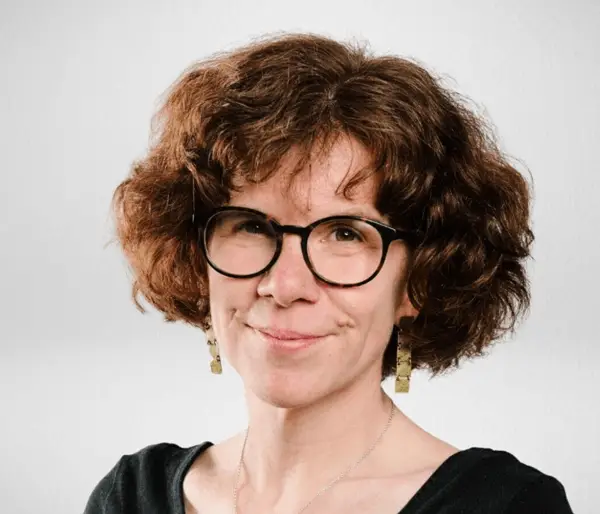
Keira has a background in nursing, public health and palliative care, with a BSc Nursing Science from the University of Hull, a Master’s in Public Health Nutrition from the London School of Hygiene and Tropical Medicine, and a PhD in Palliative Care from King’s College London. She has worked across acute and public health, academia, social research and service improvement. Today, Keira focuses on helping organisations adopt evaluation approaches that serve learning and impact. She brings a power-literacy and equity lens to her facilitation and, as a certified coach, supports groups in grappling with the deeper challenges of service and systems transformation.
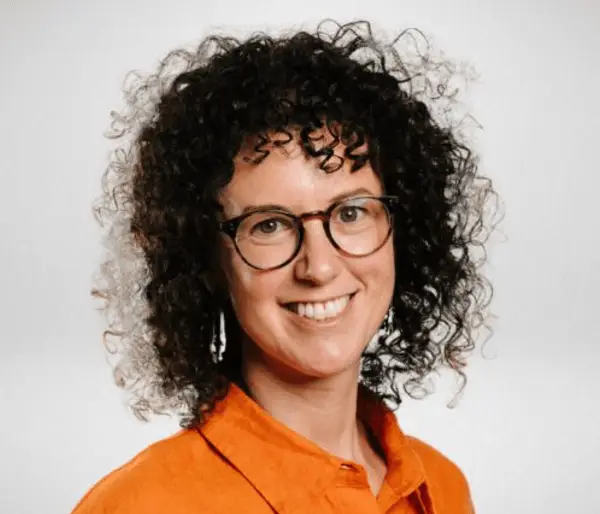
Thea is Director at the Centre for Public Impact, with experience across the public, private and not-for-profit sectors. She has worked as a commercial lawyer, public servant, and at Nesta, the UK’s innovation foundation. Recognised as a thought leader, Thea was named one of Apolitical’s most influential public sector innovators. She holds a Master’s in Public Policy from the London School of Economics, where she received the Peter Self Prize for best dissertation.
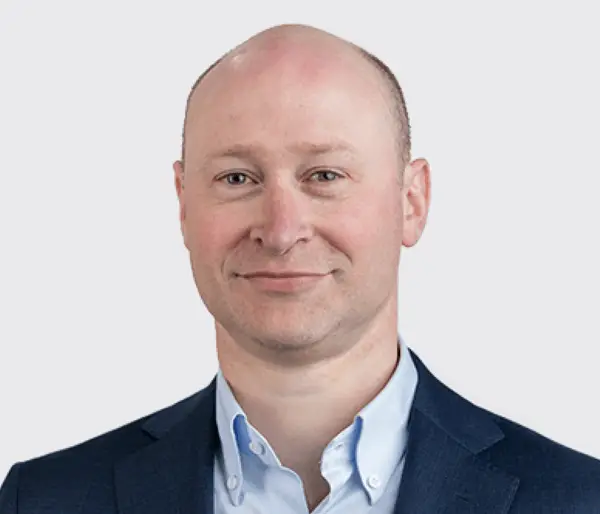
Andrew is CEO and part-owner of ForHealth, Australia’s largest bulk-billing general practice and urgent care provider, delivering over 8 million patient visits annually. Over the past 5 years, Andrew and his team have transformed the business with a mission of accessible healthcare for low socioeconomic, outer metropolitan and regional Australians. He has also served as CEO of Bellamy’s Organic, where he led a 4-year turnaround and $1.5b sale, and was previously a Partner at Bain & Co. Andrew holds an MBA from Cambridge (Dux) and a Commerce & Arts degree from the University of Melbourne.
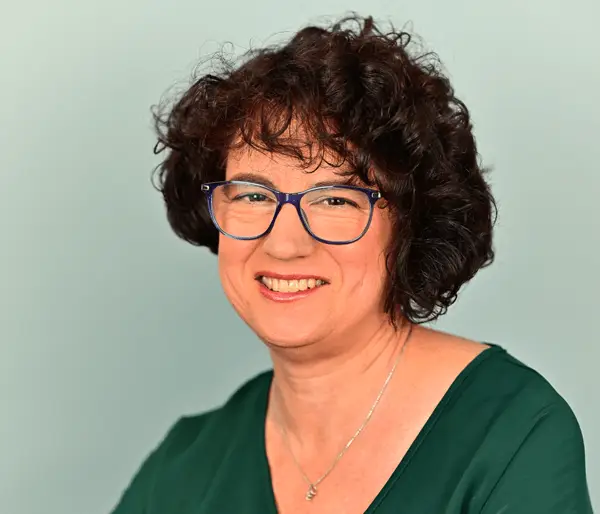
Cathy is Co-Director at The Good Shift, with a career spanning teaching and research, social policy, service system design, delivery and reform, citizen engagement, government–industry collaboration, and community-based crime prevention. She has held practice and leadership roles across community organisations, universities, and local and state government.
Passionate about helping diverse partners work, learn and innovate together, she specialises in place-based approaches that improve wellbeing and deliver measurable results.
On stage in Noosa, Cathy will unpack a practical framework for place-based systems leadership, grounded in international examples and Queensland practice. Expect guidance on how communities, services and governments work together for equity, and what to do when collaboration stalls.
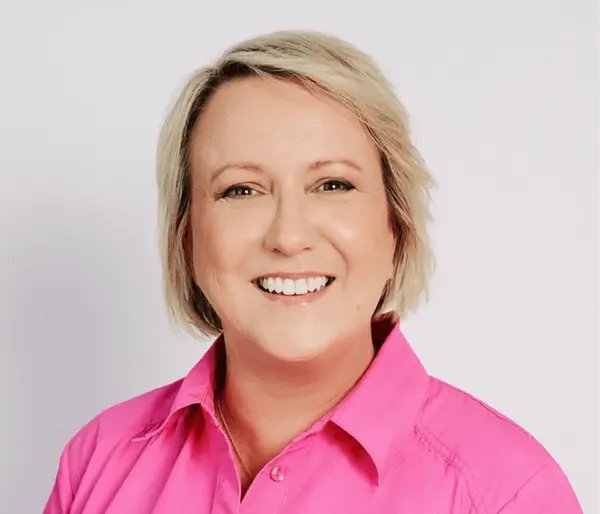
Julie is CEO of Country to Coast Queensland, a Primary Health Network (PHN) working to improve health equity across regional and rural communities.
She brings more than 30 years of experience across clinical care, health service design, digital health and executive leadership, including as CEO of Healthy North Coast (North Coast PHN) and Principal Health Specialist at Telstra Health.
Julie is a passionate advocate for system reform that centres community voice and strengthens rural and remote care. She has led primary health responses to climate-related disasters, from regional droughts to flooding, including during and after the devastating 2022 Lismore flood events. Her work focuses on digital innovation, equity focused reform and the partnerships needed to address the social and environmental drivers of health.
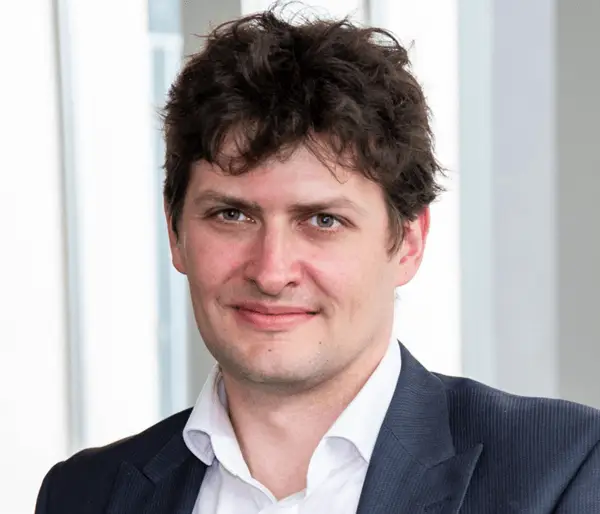
Matt is Director of the Early Intervention and Reform Team at the Department of Treasury and Finance. In this role, he has overseen the establishment and embedding of wellbeing impact analysis in budgets through the Victorian Government’s Early Intervention and Investment Framework. He has extensive experience working on government budgets and previously served as the Director in the Office of the Secretary. Matt also has a Master of Economics from the University of Melbourne.
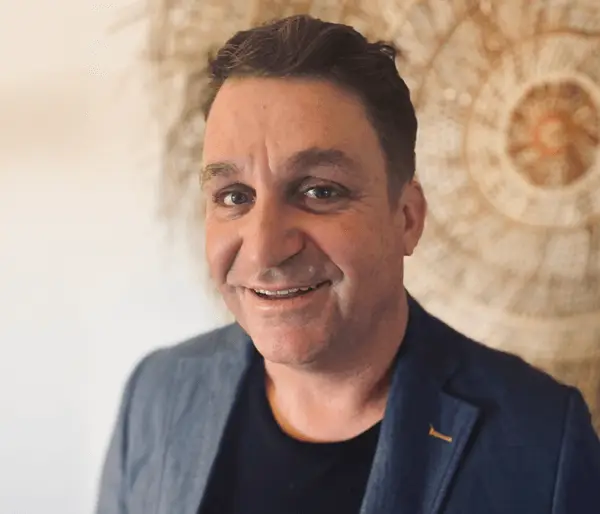
Nathan Baunach is the Broncos’ General Manager of Community and Social Impact, appointed in October 2024. He brings more than 15 years’ experience across secondary education, community services and charitable work in urban, remote and very remote Northern Territory, including with First Nations communities.
Nathan leads programs that strengthen wellbeing and opportunity through partnerships, evidence and practical support. He is focused on building on the club’s established Social Impact work, future-proofing programs and expanding their reach so more people benefit from the Broncos platform.
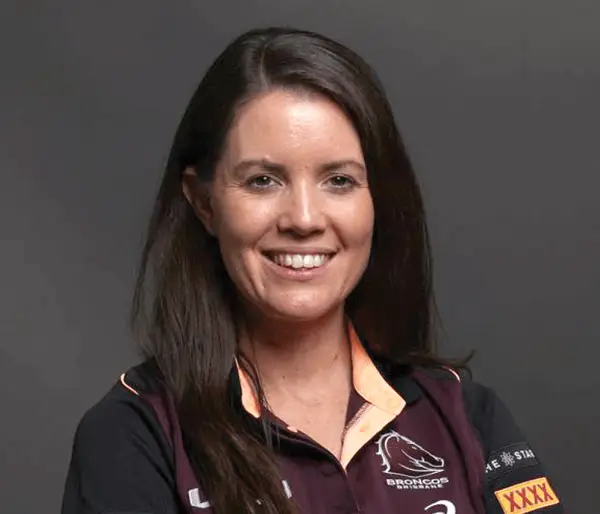
Kate Cullen is Chief of Staff and Strategy at the Brisbane Broncos, a role she has held since 2023. With a background spanning corporate strategy, stakeholder engagement, and executive advisory, Kate plays a pivotal role in shaping the club’s long-term direction and ensuring alignment across its commercial, football, and community operations.
Prior to joining the Broncos, Kate held senior roles in the private sector, where she developed expertise in organisational transformation, governance, and people-focused leadership. She is particularly passionate about leveraging sport as a platform for positive social change, drawing on her experience working with diverse communities and driving initiatives that create sustainable impact.
At the Broncos, Kate works closely with the executive team and Board to translate strategic vision into actionable priorities, ensuring that the club remains both high-performing on the field and deeply connected off it. She is motivated by the opportunity to contribute to a legacy organisation with an unparalleled platform to inspire and excite.
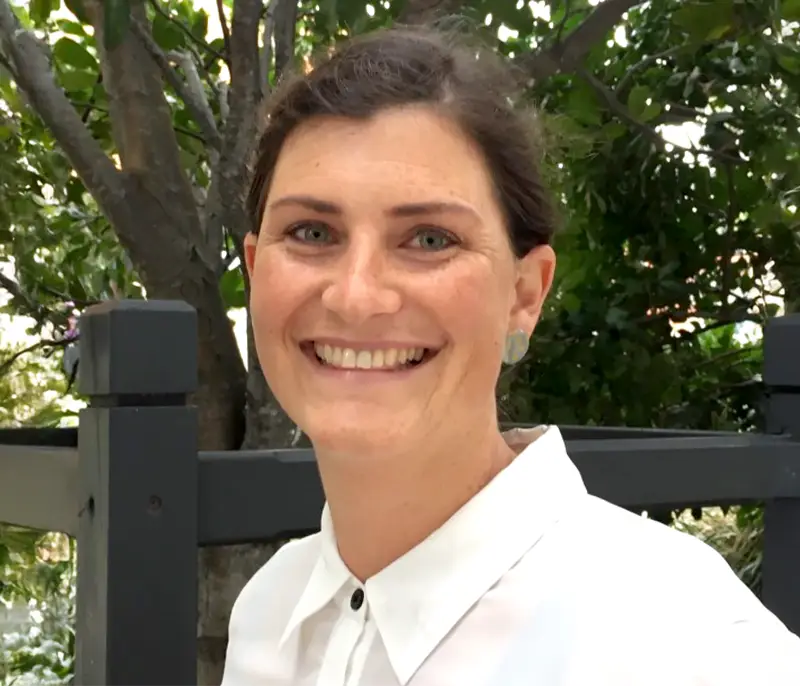
Meaghan Burkett is a passionate advocate for community-led and inclusive economic development. Meaghan is the founder of the Place Based Capital Initiative and an Executive Director with both Ethical Fields and the Centre for Community Capital. She specialises in unlocking capital systems that put economic power back in the hands of communities, building local ownership, control, inclusion, resilience and prosperity.
With two decades of experience in strategy, policy and place-based initiatives across government, non-government and private sectors, Meaghan has designed and delivered transformative programs including the Place Based Capital Program and the Natural Capital and Environmental Markets Leadership Program. Her work is informed by a recent year-long National Community Wealth Building Tour, visiting more than 30 communities across Australia to share and learn about local capital solutions.
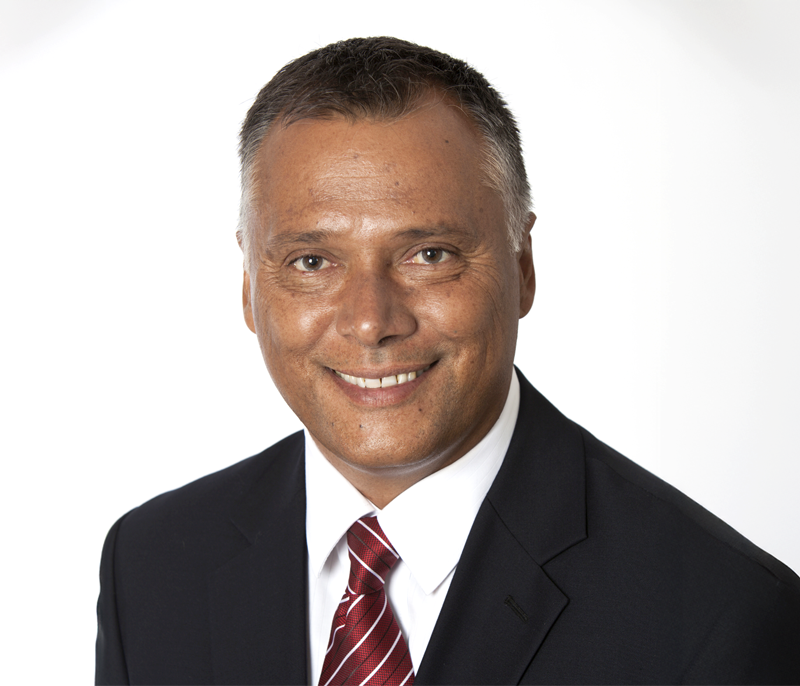
Stan Grant is a renowned journalist, author, moral philosopher, thinker, film maker and communicator.
A Wiradjuri, Kamilaroi and Dharrawal man, Stan has forged a groundbreaking four-decade career as one of Australia’s most awarded journalists — the first Indigenous Political Correspondent, the first Indigenous Foreign Correspondent, and the first Indigenous person to present a prime-time commercial television news and current affairs program.
From reporting on the end of apartheid in South Africa, the wars in Iraq and Afghanistan, and the rise of China, to producing the internationally acclaimed documentary The Australian Dream, Stan’s work spans more than 70 countries and some of the most defining stories of our time. His impact is recognised through multiple Walkley Awards, Logies, Asia TV Awards, Peabody Awards, and more.
Today, as Monash University Professor of Journalism and Director of the Asia Pacific arm of the Constructive Institute, Stan is dedicated to improving the quality of public discourse and finding new ways to meet each other beyond our differences.
On joining the Summit, Stan says:
“Equity means being seen and heard, but more than that, believing something and having courage.”
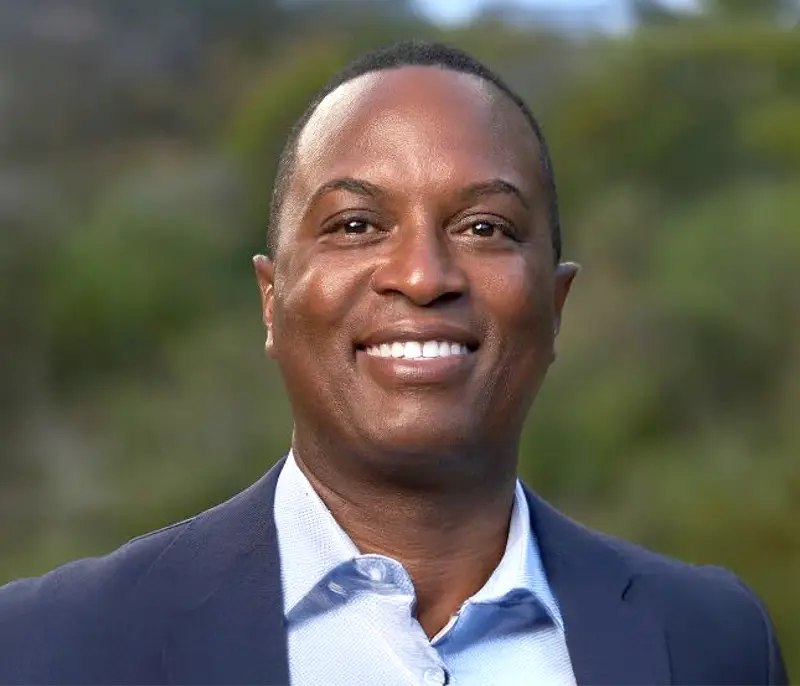
Dr Michael McAfee is a public policy strategist and one of the United States’ most influential voices on equity. As President and CEO of PolicyLink, a national research and action institute advancing racial and economic equity, he leads transformative efforts to redesign systems so that all people can participate, prosper, and reach their full potential.
Michael’s work spans grassroots organising, federal policy reform, and private sector engagement. He is a powerful advocate for embedding equity into the structures that shape daily life, from education and housing to workforce systems and corporate strategy.
Under his leadership, PolicyLink played a pivotal role in making the Promise Neighborhoods initiative a permanent federal program, driving billions of dollars into historically underinvested communities and improving outcomes for over 300,000 children. He also catalysed the development of the Corporate Racial Equity Advantage, the first comprehensive tool to help businesses assess and advance equity across their value chains.
Michael holds a Doctorate in Human and Organisational Learning from The George Washington University and completed the Executive Program in Public Management at Harvard University. He is a former military service member, an experienced changemaker, and a passionate believer in the power of evidence, humanity and love to drive social transformation.
His work challenges institutions to move beyond performative gestures and build real accountability for a just and equitable future.
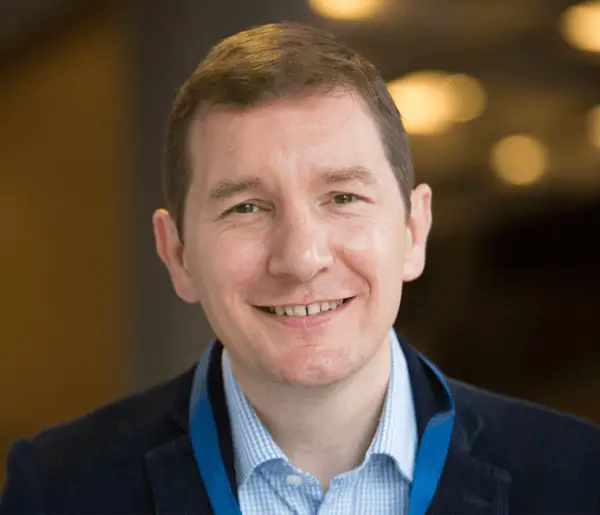
Cormac is a social explorer, author and internationally renowned speaker. As the Founding Director of Nurture Development and member of the Asset-Based Community Development Institute (ABCD) at DePaul University he has spent over 25 years working in 35 countries to empower communities through citizen-led change.
Cormac’s work has shaped community development in Africa, Asia, Australia/Oceania, Europe and North America. His books, including The Connected Community – Discovering the Health, Wealth, and Power of Neighbourhoods and Rekindling Democracy – A Professional’s Guide to Working in Citizen Space, champion local wisdom and power of connected neighbourhoods.
In his inspiring TEDxExeter talk “From What’s Wrong to What’s Strong”, Cormac challenges traditional approaches to community support, urging us to recognise the strengths and gifts that already exist within communities, and what becomes possible when we centre people and place in systems change.
Cormac will be joining us via live video stream, and we’re delighted to have his insights featured as part of the Summit program.
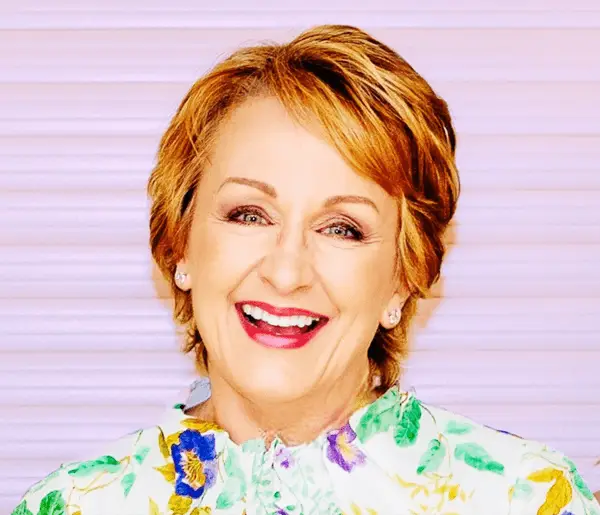
Dr Niki is an award-winning change maker and leader in gender equality and inclusive systems reform. As Victoria’s inaugural Public Sector Gender Equality Commissioner at the Commission for Gender Equality in the Public Sector (Vic) she is driving one of Australia’s most ambitious public sector reforms – implementing the nation’s first Gender Equality Act, impacting over 300 organisations, 450,000 employees and the broader community.
With a PhD in Psychology and a career spanning statutory offices, academia and community sectors, Niki brings a deep understanding of how to turn policy into meaningful change. Her leadership roles have included Commissioner for Equal Opportunity SA, CEO of the Leaders Institute of South Australia, and advisory positions with Jobs and Skills Australia and the University of South Australia.
Known for her clarity of purpose and evidence-informed approach, Niki will bring a sharp and strategic perspective to conversations on equity, inclusive leadership and systems change to the Summit.
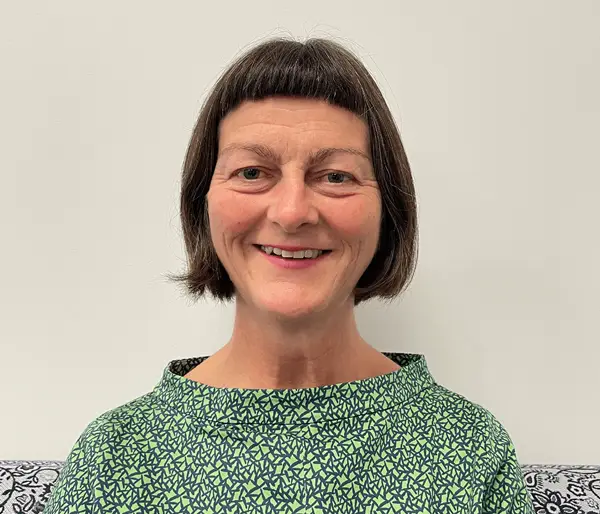
Professor Sharon Friel is an ARC Laureate Fellow and Professor of Health Equity. She is Director of the Planetary Health Equity Hothouse and the Australian Research Centre for Health Equity (ARCHE) at the School of Regulation and Global Governance (RegNet), The Australian National University.
She is a Fellow of both the Academy of Social Sciences Australia and the Australian Academy of Health and Medical Sciences.
From 2014 to 2019, Sharon served as Director of RegNet, and earlier led the Scientific Secretariat of the World Health Organization Commission on the Social Determinants of Health at University College London from 2005 to 2008. In 2014, she was recognised by her international peers as one of the world’s most influential female leaders in global health.
Her research interests include the political economy of health equity, and the governance of the social, commercial and planetary determinants of health inequities — with a particular focus on climate change, food systems, trade and investment. Her 2019 book, Climate Change and the People’s Health, explores the global consumptogenic system and its impacts on health.
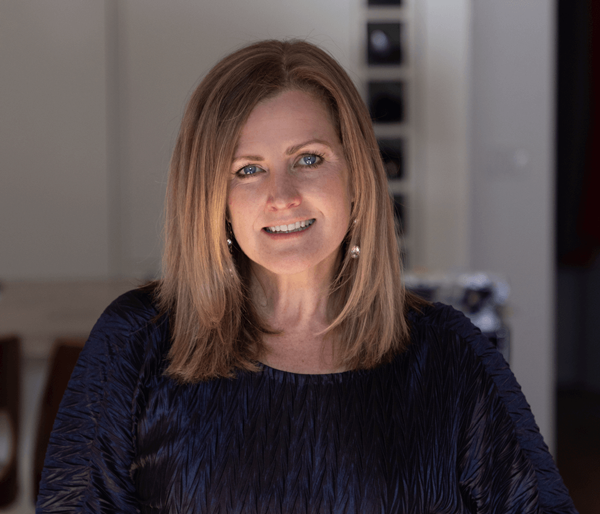
Dr Katherine Trebeck is a political economist and global advocate for building equitable and sustainable economic systems. Her work sits at the intersection of policy, practice and public dialogue — shifting how economies are designed, not just to grow, but to serve people and the planet.
She holds key roles including:
• Economic Change Lead at The Next Economy
• Strategic Advisor to the Centre for Policy Development
• Writer-at-Large at the University of Edinburgh
Katherine co-founded the Wellbeing Economy Alliance – WEAll and WEAll Scotland, and was instrumental in establishing the Wellbeing Economy Governments (WEGo) initiative — a collaboration between governments such as Scotland, New Zealand and Finland to centre wellbeing in national economic priorities.
Her work advances equity by embedding human and ecological wellbeing into economic decision-making. She’s thinker-in-residence at the Australian Health Promotion Association, a fellow at the ZOE Institute and the Post Growth Institute, and serves on the boards of Hands Across Canberra and the Centre for Understanding Sustainable Prosperity. She is also a member of the Club of Rome.
Katherine is co-author of The Economics of Arrival and is a frequent speaker on how to reimagine prosperity through justice and care.
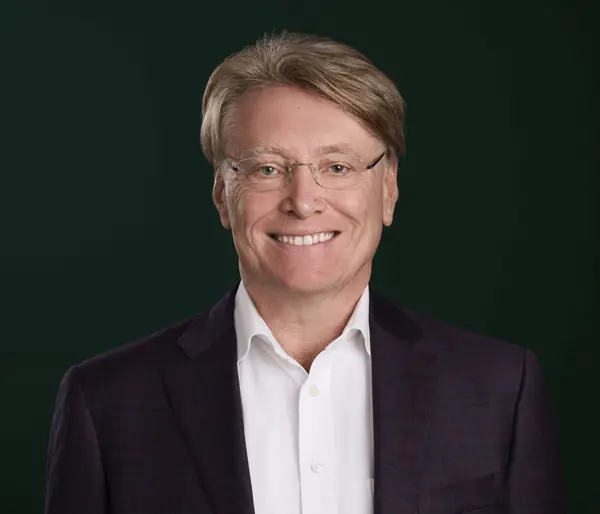
Professor Andrew Scott will be joining us on the Equity CoLab National Summit stage this October!
Andrew is Emeritus Professor of Politics and Policy at Deakin University and the author of five books, including Northern Lights: The Positive Policy Example of Sweden, Finland, Denmark and Norway, which has recently been translated into Japanese. He is also lead editor and contributor to three chapters of The Nordic Edge: Policy Possibilities for Australia.
Northern Lights was endorsed by Nobel Laureate Professor Peter Doherty, while The Nordic Edge received praise from Professor Fiona Stanley, former Australian of the Year. Both books have sold thousands of copies and helped bring international policy inspiration into Australian debate.
Andrew’s recent research has helped the national government extend paid parental leave and move toward universal early childhood education and care. He continues to advocate for further actions to improve equity in Australia.
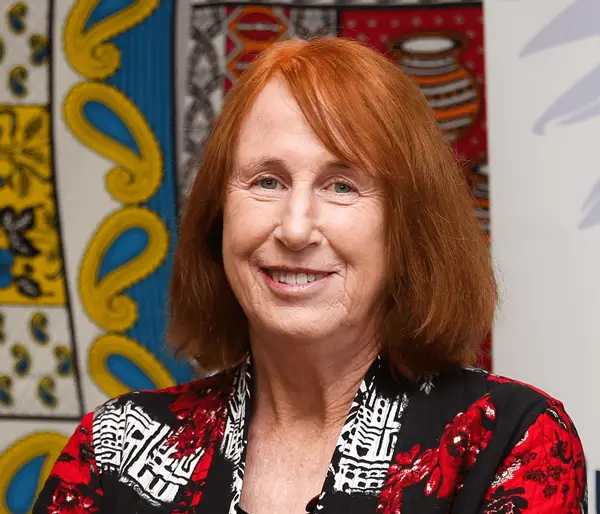
Professor Fran Baum is a public health social scientist with a deep commitment to creating and advocating for healthy, equitable and sustainable societies. Her career spans research, advocacy and global movement-building — and she is widely recognised as one of Australia’s most influential voices on health equity.
She is Director of Stretton Health Equity, Stretton Institute at the University of Adelaide and an NHMRC Investigator Leadership Fellow. Fran was awarded an Officer of the Order of Australia (AO) for her distinguished service to public health and is a Fellow of the Academy of the Social Sciences in Australia, the Australian Academy of Health and Medical Sciences and the Australian Health Promotion Association.
Fran is a past National President and Life Member of the Public Health Association of Australia, and the immediate past Co-Chair of the Global Steering Council of the People’s Health Movement — a global network of health activists working to advance the right to health and challenge structural injustice.
She is also a member of the BMJ International Advisory Board and author of over 400 publications, including:
• The New Public Health
• Governing for Health
• Co-editor of the Oxford Textbook of Global Public Health
Fran brings a rare combination of deep academic insight and long-standing advocacy for systems transformation.
7:00 AM
8:20 AM
View Restaurant Terrace
8:45 AM
Rainforest Room
9:00 AM
Rainforest Room
9:20 AM
Rainforest Room
10:20 AM
View Restaurant Terrace
10:50 AM
Rainforest Room
11:25 AM
Rainforest Room
11:55 AM
Rainforest Room
12:25 PM
Rainforest Room
12:45 PM
View Restaurant Terrace
1:45 PM
Rainforest Room
1:45 PM
Ocean Room
1:45 PM
Aqua Room
2:35 PM
Rainforest Room
2:35 PM
Ocean Room
2:35 PM
Aqua Room
3:20 PM
View Restaurant Terrace
4:05 PM
Rainforest Room
4:30 PM
Rainforest Room
6:30 PM
View Restaurant Terrace
6:00 AM
Noosa National Park
8:30 AM
Rainforest Room
8:45 AM
Rainforest Room
9:20 AM
Rainforest Room
9:50 AM
Rainforest Room
10:10 AM
View Restaurant Terrace
10:40 AM
Rainforest Room
10:40 AM
Ocean Room
10:40 AM
Aqua Room
11:25 AM
Rainforest Room
11:25 AM
Ocean Room
11:25 AM
Aqua Room
12:10 PM
View Restaurant Terrace
1:10 PM
Rainforest Room
Thriving Kids Queensland Partnership: Innovative Approaches to Funding for Child Wellbeing
Investment Dialogue for Australia’s Children and the Queensland Kid Funders Alliance: Collaborative Funding Models for Long-Term Impact
Achieve Foundation and Disability Funders Network: Redefining Funding Strategies to Support Inclusive and Equitable Outcomes
1:10 PM
Ocean/Aqua Room
Australian Business Volunteers: Enhancing Community-Led Disaster Resilience
CQID: Supporting Aboriginal and Torres Strait Islander Children through Self-Determination, Delegated Authority and the Power of Community
Collaboration for Impact: Driving Community-Led Climate Justice
2:15 PM
Rainforest Room
2:45 PM
Rainforest Room
3:00 PM
Rainforest Room
3:35 PM
Rainforest Room
Afternoon tea available in View Restaurant Terrace
7:00 AM
View Restaurant
8:30 AM
View Restaurant Terrace Standing Space
Lyndon Davis, Kabi Kabi Traditional Owner
9:00 AM
Rainforest Room
Meet your MC + introduction to the Equity CoLab National Summit 2025
9:20 AM
Rainforest Room
Acclaimed journalist Stan Grant opens the Summit with an urgent keynote on inequity in Australia, asserting truth-telling and justice for First Nations are essential to building a fairer Australia for all.
9:45 AM
Rainforest Room
Dr Michael McAfee warns America’s crises of racial injustice, extremism and inequality can happen anywhere, urging leaders to do equity’s moral work, confront backlash and lead with fierce hope.
10:15 AM
Rainforest Room
Professor Fran Baum AO, global leader on social determinants of health, will expose health inequities in Australia, unpack systemic drivers, remind us we know what works, and urge courageous leadership to build fairer, healthier systems.
10:40 AM
Rainforest Room
Dr Norman Swan AM facilitates a Q&A with Stan Grant, Dr Michael McAfee and Professor Fran Baum AO
10:55 AM
View Restaurant
11:25 AM
Rainforest Room
Professor Sharon Friel explores how health inequities and planetary health are interconnected crises driven by the same socio-economic and political systems, showing how inequality and environmental breakdown reinforce each other and why they must be tackled together.
11:50 AM
Rainforest Room
Dr Katherine Trebeck turns to one of the strongest drivers of inequity—our economic system. Drawing on global examples, she makes the case for a wellbeing economy centred on people and planet.
12:15 PM
Rainforest Room
As lead editor of The Nordic Edge book, Professor Andrew Scott has written about how Nordic nations have boosted equity through universal, public early childhood education and care, together with extensive paid parental leave, and why Australia must now do the same.
12:40 PM
Rainforest Room
Dr Norman Swan AM facilitates a Q&A with Professor Sharon Friel, Dr Katherine Trebeck and Professor Andrew Scott
12:55 PM
View Restaurant
1:55 PM
Rainforest Room
Where you live, what you earn, and your background still shape health outcomes. Professor Duckett will explore what it will take to lift equity’s profile in rhetoric, funding, policy, planning and governance.
2:20 PM
Rainforest Room
Commissioner Button will explore how inequities in mental health care harm wellbeing and productivity, and what needs to change to improve health and national resilience.
2:45 PM
Rainforest Room
Equity doesn’t happen by accident – it happens by design. Victoria’s Gender Equality Act is transforming how public institutions – including every public health service in the state – approach strategy, policy, and culture. Commissioner Dr Niki Vincent will unpack how legal obligations are reshaping workplaces and the impact of their public policies, programs, and services on communities, what’s at stake if we stall, and how the rest of Australia can build on this momentum.
3:10 PM
Rainforest Room
Dr Norman Swan facilitates a Q&A with Dr Stephen Duckett, Selwyn Button and Dr Niki Vincent.
3:25 PM
View Restaurant
3:50 PM
Rainforest Room
After a full day on systems and reform, this session centres lived experience. Lived Experience Leaders from QDN and Street Up share realities, reflections, and solutions—inviting conversation with the audience.
4:20 PM
Rainforest Room - Virtual Session
Cormac Russell argues equity is built in neighbourhoods through community power and local leadership. Progress comes when institutions enable connection, nurture relationships, and rekindle democracy.
Includes Q&A with Cormac Russell facilitated by Dr Norman Swan.
4:55 PM
Rainforest Room
5:00 PM
6:00 PM
View Restaurant
6:00 AM
Meet at View Restaurant Terrace Standing Space
Join Kabi Kabi Traditional Owner Lyndon Davis for a morning walk through Noosa National Park. Along the trails, Lyndon will share the rich history and cultural significance of Country.
8:45 AM
Rainforest Room
9:00 AM
Rainforest Room
Equity is not just a policy goal but a leadership challenge. Explore the attributes and skills leaders need to advance equity, including working across difference and values-based leadership.
9:00 AM
9:25 AM
Rainforest Room
The Early Intervention Investment Framework is a real-world example of embedding equity, prevention and outcomes into budget processes by rewarding stronger evidence, quantifying wellbeing impacts and avoided costs, and tracking impact annually.
9:50 AM
Rainforest Room
We know prevention and early intervention work, yet investment and systems remain reactive. Michael Hogan draws on real-life examples to explore why and calls for shared goals, pooled investment, and intermediaries that enable collaboration, reminding us equity begins upstream.
10:15 AM
Rainforest Room
Dr Norman Swan AM facilitates a Q&A with Mark Yettica-Paulson, Matt Donoghue and Michael Hogan.
10:30 AM
View Restaurant
11:00 AM
Rainforest Room
How can businesses turn advancing equity into impact? Siobhan Henderson shares how Australian Unity’s Community and Social Value framework embeds equity into strategy, operations and investment, driving profit and social value.
11:25 AM
Rainforest Room
Traditional public sector models prioritise compliance and control, often blocking equity. This session explores Human Learning Systems, drawing on its application in Queensland’s Public Sector Commission to show how adaptive, relational approaches can transform governance and public service for equity.
11:50 AM
Rainforest Room
Dr Norman Swan AM facilitates a Q&A with Siobhan Henderson, Thea Snow, Abbey Richards
12:05 PM
View Restaurant
1:05 PM
Ocean Room
What if equity lies not in one solution but many local ones? This session explores place-based approaches that shift power, build partnerships, and drive bottom-up systems change for equity.
1:05 PM
This session explores how communities are building capital, shifting power and ownership back to local people. Through cooperatives, collaboration and shared purpose, they are driving fairer systems and better health outcomes.
1:05 PM
No single leader can transform a system, but together we can. Cathy Boorman shares a framework for systems leadership, showing how collaboration embeds equity in place-based change across communities, government, funders and services.
1:05 PM
This session will explore how place-based approaches can advance equity, health, and wellbeing; the conditions required for equity to be centred; PLACE’s progress and successes to date; and the risks and changes needed.
1:05 PM
Rainforest Room
Can business advance equity or ultimately undermine it? This stream explores health, tech and sport case studies, showing how organisations pursue equity with profit while confronting tensions through courageous discussion.
1:05 PM
Medicare promises universal access, yet many face costs, GP shortages and gaps. Andrew Cohen explores how large providers can strengthen Medicare, protect bulk billing, expand teams, partner with communities and deliver fairer care.
1:05 PM
How can an ASX listed football club focus on winning premierships, growing its business, and contributing to equity? The Brisbane Broncos and Social Ventures Australia share their journey towards understanding the links between these objectives and developing a community strategy that contributes to each.
1:05 PM
Too many Australians miss out on care due to geography and exclusion. Visionflex shows how purpose-built virtual care expands access while putting equity, trust and safety first.
1:05 PM
Aqua Room
Advancing equity requires evidence beyond averages. This session explores how youth, lived experience, digital innovation and robust data reshape systems, elevate voices and transform decision-making.
1:05 PM
Thea Snow and Kiera Lowther show how combining lived experience, qualitative insights and quantitative data can transform policy and practice, creating more effective, equitable and compassionate decisions that reflect people’s real lives.
1:05 PM
Digital tools can expand equitable care when co-designed with consumers and powered by data. Drawing on Healthdirect’s experience, this session explores promise, risk, inclusion of digital solutions.
1:05 PM
Emi Hall from Foundations for Tomorrow shares how youth voice, lived experience and data are driving intergenerational fairness in Australia, showing how youth-led leadership can shift policy, accountability and future-focused legislation.
2:45 PM
2:50 PM
Rainforest Room
Dr Michael McAfee closes the Summit by inviting us into a founder’s stance—seeing ourselves as architects of a new era of democracy. One that is equitable, honours the humanity of all people, and serves collective flourishing. He challenges us to reflect on the actions required as leaders, the courage demanded, and the long-term commitment needed to bring this vision to life.
Includes Q&A with Dr Michael McAfee facilitated by Dr Norman Swan.
3:40 PM
Rainforest Room
4:00 PM
View Restaurant
5:30 PM